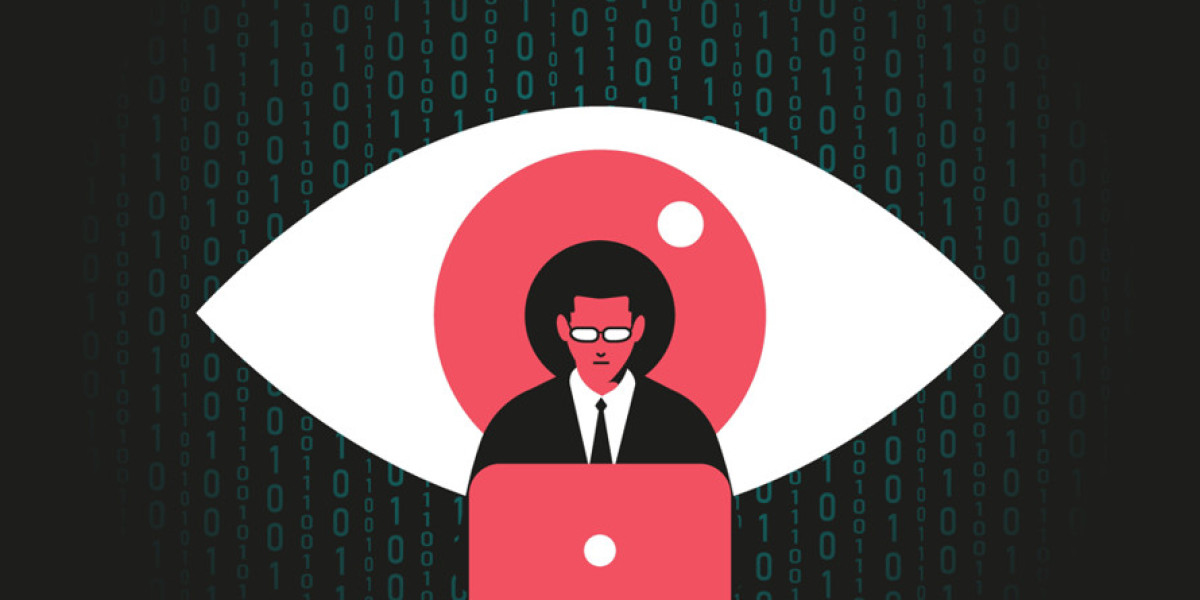Encryption and Privacy Debate
At a Matrix conference in Strasbourg last week, the conversation kept circling back to three priorities: data sovereignty, secure communications, and robust encryption.
The event, run by the developers of Matrix — an open-source, federated messaging protocol — demonstrated many real-world deployments of decentralized messaging.
What stood out was who’s actually putting Matrix to work: not just hobbyist apps, but state institutions.
Germany, for example, has deployed Matrix-based systems to protect government, military, and healthcare communications.
In France, public servants were directed last September to use Tchap — a Matrix-powered app — instead of Signal or WhatsApp.
Even the IT team at the European Commission presented trials of Matrix as a way to secure its internal messaging.
That’s notable because the Commission also backed proposals that would weaken encryption for citizens, such as measures under the so-called child sexual abuse regulation (often dubbed “chat control”).
The contrast is stark: governments are adopting strong end-to-end protections for their own networks while pushing access mechanisms that would erode everyone else’s privacy.
End-to-end encryption (E2EE) is the same basic technology used by leading messaging services and VPNs to ensure only sender and recipient can read a message.
With rising cyberattacks, identity theft, and large-scale intrusions, encryption is a key defense — so much so that U.S. agencies have advised using encrypted channels to stay safe.
Law enforcement argues that encryption blocks criminal investigations and presses for “lawful access” solutions, driving legislative efforts across Europe and the UK.
Security engineers counter that any backdoor or exceptional access fundamentally weakens systems and creates new risks for everyone.
That tension — governments hardening their own systems while proposing weaker protections for the public — is a contradiction worth noticing.
EU Delays Controversial Communications Monitoring Legislation
In an unexpected turn of events, the European Union Council has postponed voting on the contentious "chat control" legislation originally scheduled for mid-October 2025. Germany's decision to join opposing member states forced the delay, though digital rights advocates remain cautious as the proposal is expected to resurface in December discussions.
"The contradiction is glaring," notes Matthew Hodgson, Matrix co-founder. "Undermining encryption might seem logical to some policymakers, but it fundamentally threatens digital security for everyone."
Technical experts consistently emphasize that creating selective "backdoors" in encryption is fundamentally flawed. Such vulnerabilities cannot be restricted to authorized users only—once implemented, they become potential entry points for any malicious actor.
This technical reality raises questions about lawmakers' true understanding of encryption technology. Runi Hammer, CEO of Danish communications company Meedio, suggests something more concerning: "Governments fully comprehend what they're proposing. It's a classic case of 'rules for thee but not for me.'"
This perspective appears validated by recent developments. The Danish version of the chat control proposal notably exempts government and military communications from the mandatory scanning requirements that would apply to ordinary citizens' private conversations.
"They clearly recognize encryption's importance for secure governmental communications," Hammer continues. "Yet they're willing to compromise that same security for private citizens under the guise of fighting illegal content. The invasiveness cannot be justified by the stated goals."
Julie Ripa, who manages Tchap at France's digital services agency (DINUM), offers a more nuanced view while acknowledging the different security requirements between governmental and civilian communications. Nevertheless, she maintains: "Compromising privacy won't solve the underlying issues. Creating backdoors simply attacks a symptom rather than addressing the root problems."
The Encryption Debate: Balancing Privacy and Government Access
In an era where digital communications dominate our daily lives, the tension between privacy rights and government surveillance continues to intensify. Technical experts unanimously agree that implementing encryption backdoors would fundamentally compromise the security and privacy standards currently in place.
This growing conflict raises profound questions about how we conceptualize privacy in the modern age. Christian Calcagni, serving as strategic advisor at Rocket.Chat, suggests we may need to completely reimagine our definition of private communication. "Encryption or no encryption, what could be the way?" he asks, highlighting the complexity of finding middle ground.
Calcagni expresses strong reservations about governmental efforts to undermine encryption protocols. He questions the fundamental right of authorities to access personal thoughts and communications, arguing that the conversation should extend beyond technical mechanisms to encompass broader implications for personal privacy and intimate exchanges.
Taking a more definitive stance, Gabriel Engel, Rocket.Chat's founder and CEO, frames the issue not as a matter of security but as one of control. He points to a troubling double standard where governments seek unrestricted access to citizens' communications while simultaneously demanding robust security for their own exchanges. Engel characterizes this as an ongoing struggle for individuals to maintain privacy rights and data sovereignty.
The sentiment at industry conferences reflects widespread opposition to initiatives like "chat control" proposals. Nevertheless, proponents of these measures cite legitimate concerns about combating serious crimes including terrorism, drug trafficking, and child exploitation.
Matthew Hodgson, co-founder and CEO of Element, proposes an alternative approach. Rather than implementing mass surveillance through weakened encryption, he advocates for developing improved infrastructure that preserves privacy while enabling community-based monitoring. "We need to do a much better job of providing the trust and safety tools needed to report and flag these crimes," Hodgson explains, lamenting insufficient funding for developing such alternatives within the Matrix ecosystem.
The ongoing debate reflects the challenge of balancing legitimate security concerns with the fundamental right to privacy in digital communications.
Encryption Debate
The Encryption Dilemma: Balancing Privacy and Security in a Digital Age
The tension between technology and governance continues to widen as policymakers and tech experts struggle to find common ground on encryption issues.
Technical experts consistently maintain that creating "secure backdoors" is fundamentally contradictory - a mathematical impossibility rather than a matter of insufficient effort. Despite this technical reality, government initiatives worldwide persist in pursuing surveillance capabilities that would undermine the very security systems protecting our digital lives.
This growing disconnect highlights a critical challenge for our society: how can we reconcile legitimate law enforcement needs with the fundamental right to private communication? The balance seems increasingly difficult to achieve as digitalization accelerates.
"Private communication represents a cornerstone of democratic freedom," noted a security researcher at the recent digital rights conference. "Implementing mass surveillance technologies threatens to undermine the foundation of a free digital society."
Recent events have only emphasized the vulnerabilities in our current systems. The widespread service disruption affecting major platforms last month demonstrated the fragility of centralized communication infrastructure, while legislative developments like the postponement of controversial monitoring regulations offer only temporary relief in what security advocates describe as an ongoing struggle.
Meanwhile, emerging legislation in several countries raises concerns beyond surface-level issues like age verification - potentially threatening the integrity of end-to-end encryption that millions rely on daily for secure communication.
As our world becomes increasingly digital, finding this balance isn't merely a technical challenge but a fundamental question about the kind of society we wish to build.
Why People Need VPN Services to Unblock Porn
Many individuals utilize VPN services to unblock porn primarily for enhanced privacy, seeking to conceal their online activities from ISPs or local networks. Porn unblocked refers to the successful bypassing of geo-restrictions or censorship filters, granting access to adult content websites that would otherwise be inaccessible in their region. This allows users to securely and privately unblock porn sites regardless of local limitations.
Why Choose SafeShell VPN to Access Adult Content
If you're looking to unblock porn sites and access region-restricted adult content, SafeShell VPN offers a comprehensive solution that prioritizes both accessibility and privacy. This service enables users to bypass geographical restrictions while maintaining complete anonymity, ensuring that your online activities remain private and secure from potential surveillance by ISPs or network administrators.
SafeShell VPN distinguishes itself with several standout features that enhance the user experience. Its lightning-fast connection speeds ensure smooth streaming without the buffering issues commonly associated with VPN services. The innovative App Mode allows users to access content from multiple regions simultaneously, eliminating the need to switch servers repeatedly when browsing different unblock porn sites from various locations.
The proprietary ShellGuard protocol provides military-grade encryption that keeps your browsing habits completely confidential, while remaining undetectable by sophisticated monitoring systems. Additionally, SafeShell VPN supports up to five simultaneous connections across various platforms including Windows, macOS, iOS, Android, and smart TVs, ensuring that all your devices benefit from the same level of protection and unrestricted access to the content you desire.
How to Use SafeShell VPN to Unlock Porn Sites
To get started with SafeShell VPN and reach adult sites in other regions, follow a clear step-by-step process: Step 1 — subscribe and create an account on the service so you have login credentials; Step 2 — download and install the appropriate SafeShell VPN app for your phone, tablet, or computer, granting any required permissions during setup; Step 3 — sign in to the app and enable App Mode (or split-tunneling) if you want only specific apps routed through the VPN for added flexibility.
Step 4 — pick a server located in the country whose content you want to access and initiate the connection; Step 5 — before opening sites, clear cookies or use a private/incognito browser window to avoid local tracking and to ensure the new virtual location takes effect; Step 6 — verify your apparent location via an IP check, enable the kill switch and other privacy features, then browse, remembering to keep the app updated and to disconnect or log out when you’re finished for best security.








